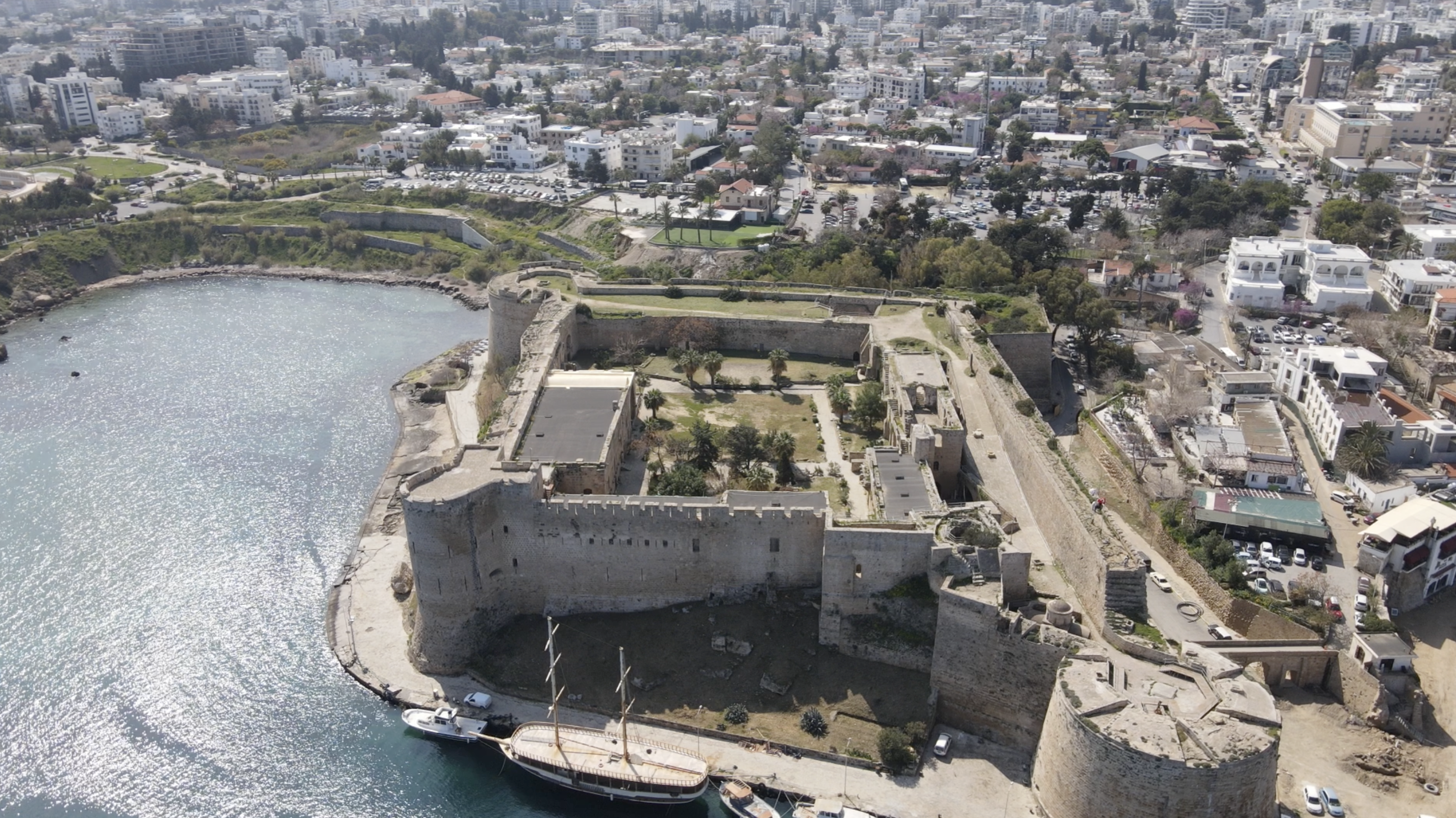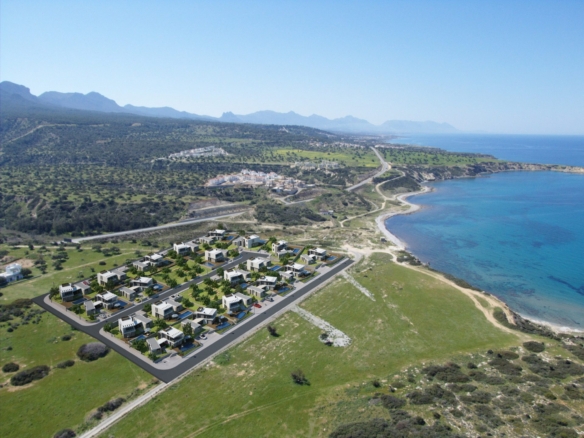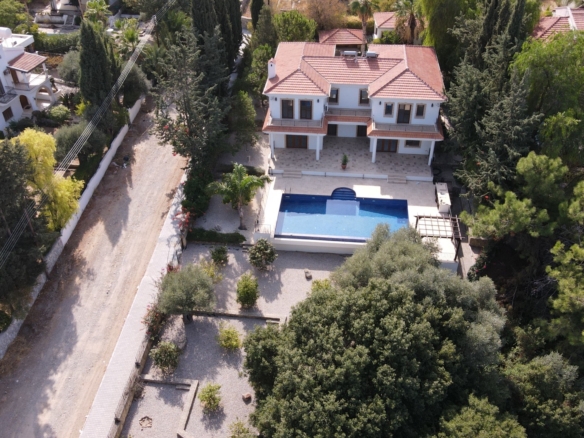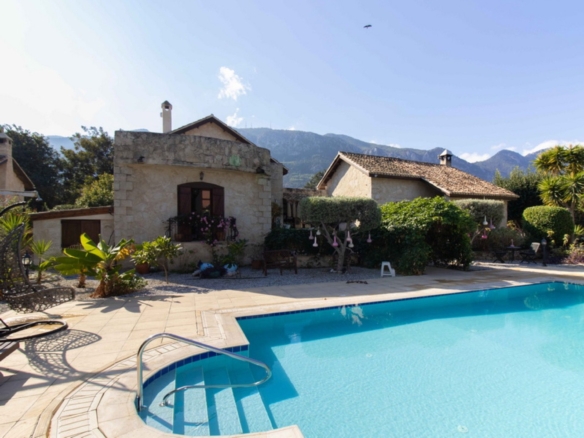Buying Property in Northern Cyprus
To understand the risks of buying property in Northern Cyprus, it’s important to first know the history of the Turkish Republic of Northern Cyprus (TRNC) and the island of Cyprus.
Historical Background
Cyprus was first settled around 7,000-10,000 BC by people from Anatolia and Syria. The island came under the control of various empires, including the Assyrians, Persians, Egyptians, and Alexander the Great. In 58 BC, Cyprus became part of the Roman Empire and remained under Byzantine control after the empire split in 395 AD. During the Umayyad and Abbasid Caliphates, Cyprus was frequently targeted by Islamic armies but was never fully conquered, although Muslims settled on the island over time.
In 1191, Cyprus was captured by King Richard the Lionheart of England, who later sold it to the Knights Templar. The island was subsequently sold to Guy de Lusignan, the former King of Jerusalem, marking the beginning of the Lusignan period, which lasted until 1489. This era saw significant economic and cultural development.
In 1489, Cyprus came under Venetian rule but was conquered by Ottoman Sultan Selim I in 1571. The strategic importance of Cyprus, especially due to piracy, made its conquest essential. Under Ottoman rule, life on the island flourished, with Orthodox churches reopened and various infrastructure projects initiated. The Ottoman administration also increased the Muslim population on the island through settlers from Anatolia.
After the 1877-1878 Russo-Turkish War, Britain took advantage of the situation and proposed establishing a military base in Cyprus in exchange for promising support against a potential Russian threat. The Ottomans accepted this offer under difficult circumstances and ceded administrative control of Cyprus to Britain while retaining sovereignty rights.
Under British rule, several problems arose as Britain took actions contrary to agreements, seizing property and exerting pressure on Muslims while encouraging Greeks to do the same. During World War I, Britain annexed Cyprus in 1914, and this annexation was recognized by Turkey in the 1923 Lausanne Treaty.
Britain granted Cyprus a colonial status in 1925, but in 1931, Greek Cypriots began a revolt seeking union with Greece (Enosis). In 1950, a plebiscite led by Archbishop Makarios, which was not recognized by Britain or Turkey, prompted Greece and Greek Cypriots to seek self-determination from the United Nations. Turkey made a similar appeal, but the UN suggested the right to self-determination could apply to both sides. This led to the formation of the EOKA terrorist group, which waged violence against Turkish Cypriots. The violence resulted in numerous deaths, property destruction, and displacement of Turkish Cypriots.
In response to escalating violence, Turkey intervened militarily in 1974 after a coup in Cyprus and a subsequent call for intervention by the UN. The island was effectively divided, and Northern Cyprus declared independence in 1983. The TRNC remains unrecognized internationally except by Turkey.
Political Structure
The TRNC operates as a semi-presidential democracy. The President is the head of state, while the Prime Minister leads the government. Executive powers are shared between the government and the president. The country is administratively divided into six regions: Nicosia, Famagusta, Kyrenia, Morphou, İskele, and Lefke.
The legislative body, the Republic Assembly, consists of 50 seats, elected every five years. In the most recent general elections on January 23, 2022, the National Unity Party (UBP) won 39.5% of the vote and 24 seats, while the Republican Turkish Party (CTP) won 32% and 18 seats.
Presidential elections are also held every five years. Rauf Denktaş, a key figure in Cypriot politics before the TRNC’s independence, was the President from 1983 until 2005. His successors include Mehmet Ali Talat (2005-2010), Derviş Eroğlu (2010-2015), and Mustafa Akıncı (2015-2020). Ersin Tatar of the UBP won the presidency in the 2020 elections with 51.6% of the vote.
Economic Situation
The TRNC’s economy relies heavily on the service sector, particularly tourism and education. Agriculture, industry, and construction each contribute around 10% to the economy. Major agricultural products include grapes, citrus fruits, potatoes, barley, and olives. Poultry farming and fishing are also significant, with textiles being the primary industry.
Economic isolation and embargoes due to non-recognition by many countries affect the TRNC significantly. However, support from Turkey helps mitigate some of these challenges. In 2020, the TRNC’s total trade volume was $1.3 billion, with $100 million in exports and $1.2 billion in imports, mainly with Turkey, the EU, Eastern Europe, and the Middle East.
Relations with Turkey
Turkey has played a crucial role in the history of Northern Cyprus, providing significant support and being the only country to officially recognize the TRNC. Relations between Turkey and the TRNC are deeply intertwined due to historical, strategic, and political reasons. Turkey has been a key ally and supporter of the TRNC in various capacities.
Situation of Muslims
The TRNC’s population is predominantly Turkish Muslim, and their religious practices and lifestyle are similar to those in Turkey. However, Cyprus’s attractiveness as a tourist destination introduces potential risks related to the island’s general character and international perceptions.
Conclusion
The TRNC has managed to maintain its self-governance under political and economic isolation for over 50 years. Despite the challenges, buying property in Northern Cyprus is generally considered safe due to its democratic and parliamentary governance. Buying property in North Cyprus is safe as any other country.
As more people recognize the beauty and benefits of living and retiring in Northern Cyprus, the real estate industry has seen a significant boost, particularly from EU buyers. However, this increased interest has also led to a rise in unlicensed agents and social media influencers promoting unreliable builders and properties. This can expose buyers to potential scams and risks. Therefore, it is strongly advised to purchase property through reputable local estate agents in Northern Cyprus to ensure a safer and more secure investment.




